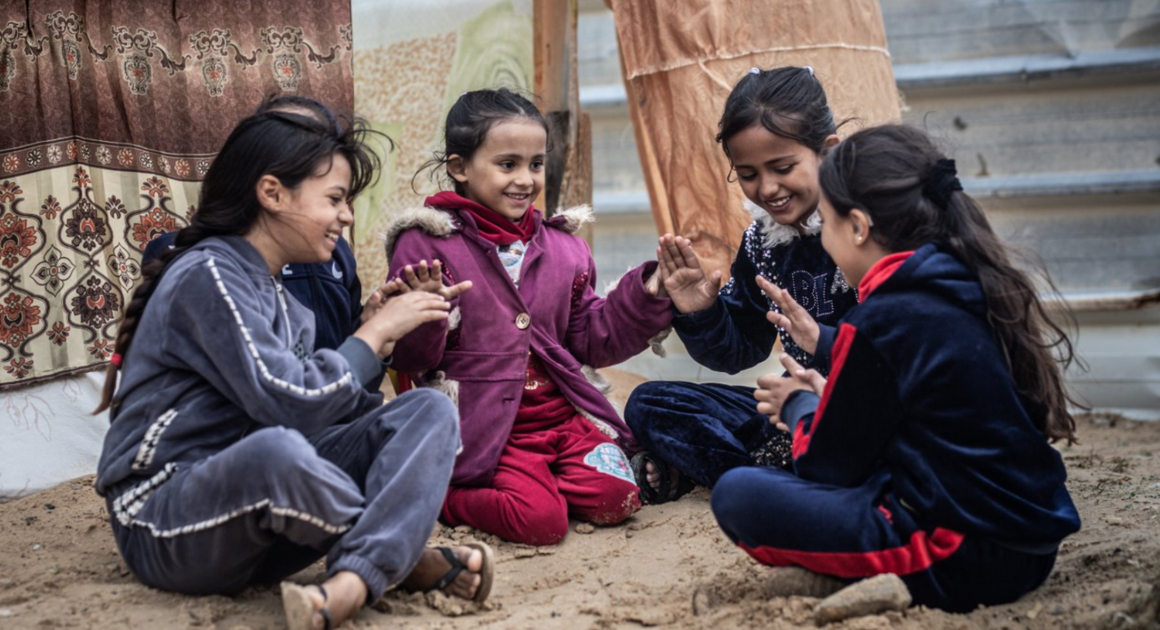10 October - World Mental Health Day We Must Cut the Roots of Mental Ill-Health in Humanitarian Emergencies

For the 34th successive year, World Mental Health Day (WMHD) is being marked across the world today, drawing global attention to the importance of mental health. Since 1994, the themes of the WMHD have framed global discourse on mental wellness and psychosocial support, and helped focus on the need for governments to take policy decisions that will improve the state of mental health in their countries.
This year’s theme is Mental Health in Humanitarian Emergencies. It is very apt in light of the waves of natural and not so natural disasters of catastrophic proportions rocking the world. According to the World Health Organization, “natural disasters, conflicts, and public health emergencies cause emotional distress, with one in five individuals experiencing a mental health condition.”
This general estimation gets worse within the context of displacements due to wars, and the vengeance of nature, in shapes of massive natural disasters. For example, one out of three refugees and internally displaced people are known to suffer from clinical depression or post-traumatic stress disorder (PTSD). To make a terrible situation worse, humanitarian emergencies result in the dislocation of healthcare delivery in general. And mental health services, even where these existed before hand, are usually some of the first of healthcare services that get swept away in the turbulence of disasters.
The most vulnerable sections of the population suffer the most. Women and children, particularly those from poor working backgrounds, bear physical and mental wounds that might never heal or if they do, leave them scarred for life, particularly with the lack of mental health first aid and psychosocial support.
Health workers are at the eye of the storm in humanitarian emergencies. They are confronted with caring for others as much as they can, and sometimes more. This takes a huge toll on them in more ways than can be imagined. They face debilitating mental health pangs in such contexts.
They are overstretched resulting in burnout, they witness deaths and suffering that they cannot stop, much as they want to and put in superhuman efforts to no avail, sparking depression, anxiety and compassion fatigue. They live with the horrors they went through during humanitarian emergencies, time and again even long after the emergencies, scarring them deeply with long lasting PTSD.
On top of all these, we have also seen the increasing extent of targeting of health workers in conflict zones, adding palpable concern for their lives to the pile of concerns undermining their mental wellbeing.
Any serious concern to address mental health in humanitarian emergencies must prioritise the provision of mental health and psychosocial support (MHPSS) for health and other emergency services workers. And world leaders need to also go beyond mere words which cannot but ring hollow regarding safeguarding the lives and mental health of people in conflict zones. International humanitarian laws need to be respected. Member states of the United Nations are dutybound to respect this. Countries that hold such laws in contempt, as we have seen repeatedly in recent and ongoing conflicts, should duly face sanctions.
It is also significant to stress that even natural disasters need to be put in proper perspective. Most of these disasters, especially those arising from extreme weather events, have their roots in the climate crisis. And what is driving the climate crisis? It is the soaring of corporations and billionaires expanding their profits on fossil fuel wings.
For-profit interests contribute significantly, both directly and indirectly, to sparking public health emergencies. Epidemics and pandemics have arisen from economic activities that included the invasion of wild ecosystems. The worsening climate crisis and environmental emergency is quickening the cycles and deepening the severity of public health emergencies making the climate crisis a health crisis that more and more often assumes humanitarian disaster proportions.
Public Services International (PSI) study underscored the adverse impact of neoliberal policies on the mental health of working people, particularly in the health sector, with international case studies. Putting profit before people and the planet, is at the root of humanitarian disasters, in general. And the flavouring of geopolitical intrigues or national chauvinism on this foundation throws up wars and other violent conflicts.
Governments need to take concrete action to curtail the direct effects of humanitarian disasters on the mental health of people; particularly workers delivering emergency services, women and children. But, to stop at this would essentially amount to addressing the symptoms of a systemic problem. We need to address the problem at its very roots. This entails fighting to put people and the planet over profit, and to ensure universal access to quality public services. Thus, PSI and its affiliates across the world are fighting to push back the system which guts our mental health and very lives.
Stand up today for mental wellness in health emergencies and across our societies. Stand up to fight for a better world that can enable this.
